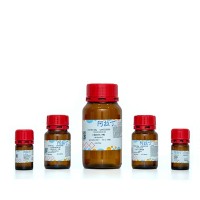A Molecular Evolution Approach for Isolation of Intrinsically Active (MEK-Independent) MAP Kinases
互联网
450
Mitogen-activated protein (MAP) kinases are a large family of enzymes composed of about four subfamilies, each containing several isoforms and splicing variants. Many MAP kinases are coexpressed in each eukaryotic cell and coactivated in response to various stimuli. It is, therefore, difficult to explore the specific downstream effects of each species of MAPK. Expression of an intrinsically active variant of a MAPK, while other MAPKs are not active, allows for tracking of a specific array of substrates, target genes, and biological/pathological effects corresponding to the expressed molecule. This chapter describes a method for obtaining such intrinsically active MAPKs. Because of the unique mode of MAPK activation, which is absolutely dependent on unconventional phosphorylation (on neighboring Thr + Tyr residues), a rational design of mutations that would render the kinase intrinsically active is currently unfeasible. Our method is based, therefore, on a “Molecular Evolution” approach that uses the power of yeast genetics and is unbiased toward the mutation sites. We describe in detail how to prepare a large population of randomly mutated molecules of the desired MAPK and how to screen this library in a yeast strain lacking the relevant MAPK kinase (MAPKK). The idea is to identify MAPK variants that are fulfilling all MAPK functions and allow growth of this strain – namely, MAPK molecules that function biologically in the complete absence of their upstream activator. We further describe the details of the “plasmid-loss” assay used for distinguishing between true positive and false positive clones. Finally, we report on a new yeast strain lacking four MAPKKs that could serve as a universal target for screening for active MAPK of all subfamilies.









